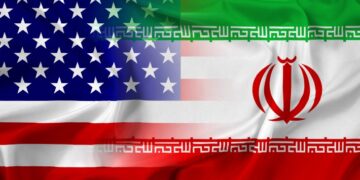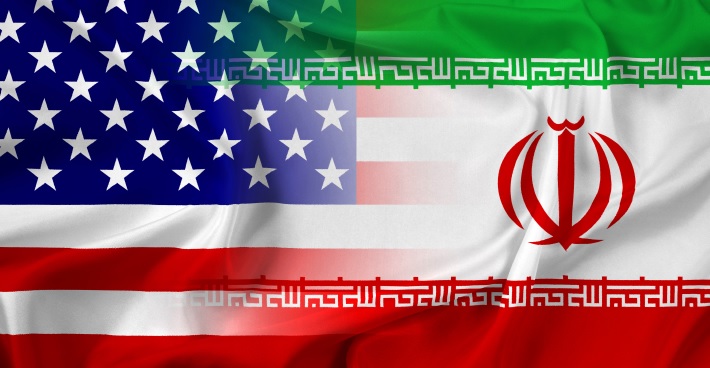By John Ikani
Iran has began the process of transferring five American prisoners from jail to house arrest, a crucial initial step in a complex arrangement that could potentially unlock substantial Iranian funds and pave the way for these prisoners to depart from the Islamic republic.
The development concerning the detainees, with one of them being held captive for an extended period of nearly eight years, was a result of discreet and thorough diplomatic negotiations between the long-standing adversaries.
These talks, aimed at reestablishing a nuclear deal, had previously faltered.
Secretary of State Antony Blinken expressed his perspective on the matter, stating, “My belief is that this is the beginning of the end of their nightmare, and the nightmare that their families have experienced.”
Insiders familiar with the negotiations have disclosed that the subsequent phase will entail the transfer of $6 billion in Iranian oil revenue, currently frozen in South Korea, to a specialized account located in Qatar.
The purpose of this account would be to facilitate Iran’s access solely for humanitarian acquisitions, such as essential provisions like food and medicine.
Iran characterizes this arrangement as a reciprocal exchange of prisoners, with the state-operated IRNA agency quoting the Tehran mission to the United Nations, which affirms that both nations will extend “amnesty and release” to five prisoners from each side.
The projected trajectory anticipates that the American detainees could potentially depart from Iran sometime during September, as disclosed by a source who preferred to remain anonymous.
Four of the captives—Siamak Namazi, Emad Sharqi, Morad Tahbaz, and an additional individual who chose anonymity—were transferred from Tehran’s notorious Evin prison on Thursday. This event occurred one day after the Biden administration had apprised their families of the ongoing deal.
Subsequently, these four individuals were taken to a hotel, where they will remain under supervision by guards, as confirmed by a lawyer representing one of the detainees.
It has been divulged that a fifth American, a woman, has also been encompassed within the negotiations and was already relocated to house arrest in preceding weeks.
While acknowledging the positive development, Babak Namazi, Siamak’s brother, conveyed a sentiment of cautious optimism, stating, “While this is a positive change, we will not rest until Siamak and others are back home; we continue to count the days until this can happen.”
The principal focus of these discussions has revolved around the release of the $6 billion in Iranian oil proceeds that were impounded due to US sanctions, implemented under the administration of former President Donald Trump. These sanctions had dealt a significant blow to Iran’s economy.
Despite underscoring that the arrangement has not yet been finalized, sources underscored that the funds would be converted from South Korean won to euros and would be administered by Qatar, a nation that has assumed a pivotal role in mediating these negotiations. Importantly, no funds will be directly transferred to Iran.
Blinken was unequivocal in asserting that the funds are Iran’s rightful possessions. He clarified, “Iran’s own funds would be used and transferred to restricted accounts such that the monies can only be used for humanitarian purposes.”
Iranian state media sources indicated that the release of the prisoners would be contingent upon the deposition of the designated funds.
In a previous instance, during his tenure, former President Barack Obama faced criticism from Republican opponents when he authorized the delivery of $400 million in cash—also Iranian funds—as part of securing the release of an earlier group of detainees. This transpired simultaneously with the negotiation of a historic nuclear agreement with Tehran in 2015.
The recent accord has invited censure from Republicans, who argue that it could potentially alleviate budgetary pressure on Iran. Senator Tom Cotton, known for his hawkish stance on Iran, accused President Biden of engaging in a “craven act of appeasement,” asserting that such actions would merely embolden the Iranian leadership.
Nonetheless, there is no indication that this prisoner agreement will have any bearing on efforts to reinstate the nuclear deal, from which former President Trump had withdrawn the United States.
Biden’s stance on rekindling the 2015 agreement has been unequivocal, following a period marked by intensified crackdowns by Iran’s religious leadership and widespread demonstrations led by women.
Historically, the United States has frequently engaged in negotiations with adversarial nations to secure the release of American captives, given the considerable public attention such cases attract. The Biden administration, despite maintaining limited high-level contact with Moscow due to the Ukraine crisis, has managed to broker prisoner exchanges with Russia.
All five US citizens involved in this agreement are of Iranian descent. However, Iran does not acknowledge dual nationality and has sustained a contentious relationship with the United States since the 1979 Islamic revolution led to the ousting of the pro-Western Shah.
One of the captives, Siamak Namazi, a businessman, was apprehended in October 2015 on allegations of espionage. His family dismisses the evidence against him as flimsy, pointing to his prior affiliations with US think tanks.
Siamak’s father, Baquer Namazi, a former UNICEF official, was arrested when attempting to assist his son. He was eventually allowed to depart last year due to deteriorating health.
Morad Tahbaz, a supporter of wildlife conservation in Iran, was detained alongside fellow environmentalists in January 2018. He received a 10-year sentence for alleged “conspiring with America.” Holding triple citizenship, including a British passport, Tahbaz was briefly placed under house arrest last year in a deal with Britain that also led to the release of two other British nationals, including aid worker Nazanin Zaghari-Ratcliffe.
Emad Sharqi, a venture capitalist sentenced to a decade in prison on charges of espionage, completes the group of American detainees.


































